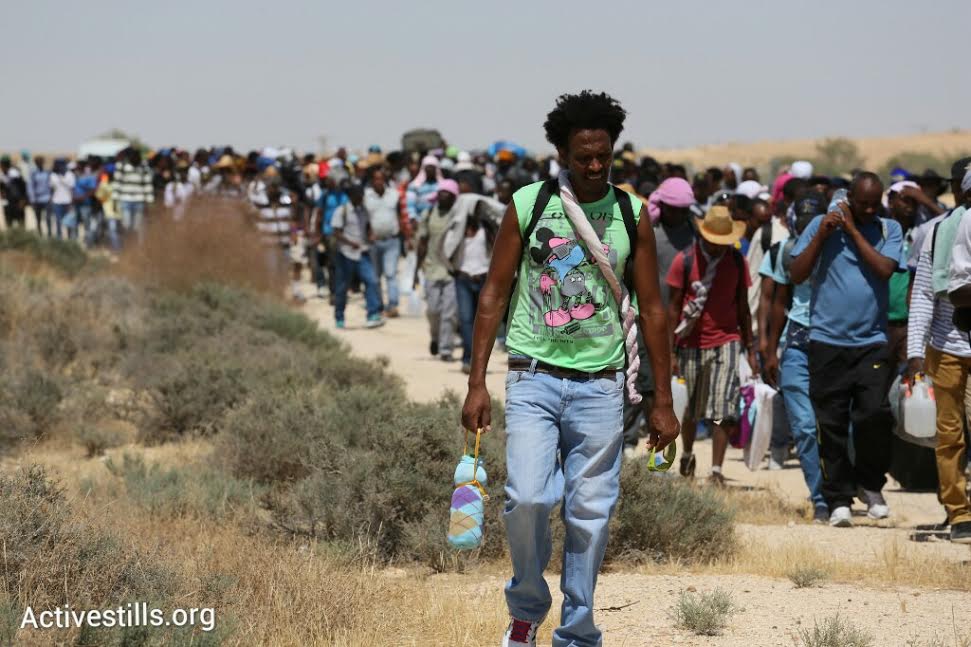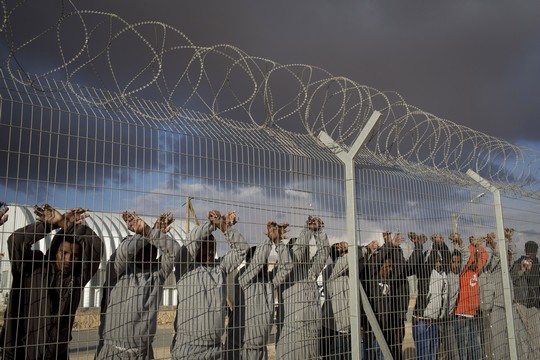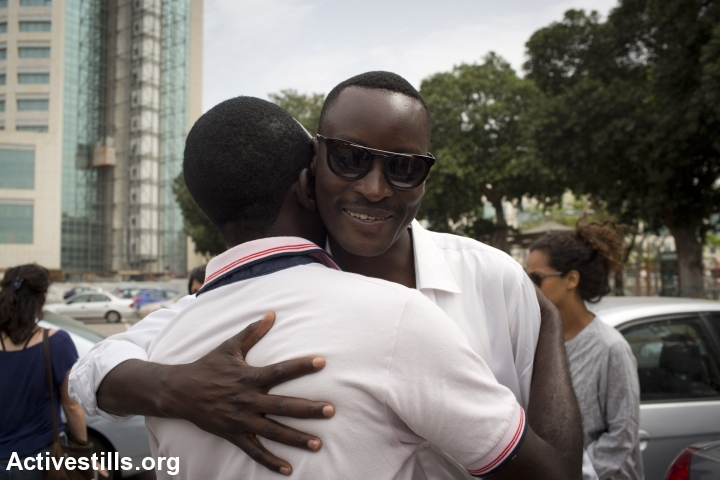In an open letter, one of Israel’s foremost refugee rights lawyers calls on the deputy attorney general to follow her conscience.
By Asaf Weitzen

Dear Deputy Attorney General Dina Silber:
I am familiar with a bit of your academic work, including two books you authored and speeches that you give from time to time. You have demonstrated a deep commitment to basic rights and an understanding that the any government must be checked if and when it seeks to infringe upon basic rights. What I find incomprehensible is the disparity between those views and your intensive involvement in legislating the amendment to the Prevention of Infiltration Act. Hence this letter. Due to the importance of the issue at stake and its relevance to the public, I feel that it should be published and I would appreciate the publication of your response to it as well.
I am not trying to convince you that you are perpetrating an injustice. I am not calling on you to “refuse.” I am only asking you to help me understand. To reveal what it is that allows you to work with such devotion and intensity on the legislation of an additional amendment to the Prevention of Infiltration Act. How do you remain so devoted to a law that translates into the continued deprivation of liberty, all while doing nothing for overburdened neighborhoods like south Tel Aviv that have high concentrations of asylum seekers and other non-deportable foreigners.
I make three basic assumptions in this letter. The first assumption is that you have freedom of choice and that you would not pay a catastrophic personal price should you refuse to take part in the legislative process. The second assumption is that you believe the denial of liberty from the innocent and harmless should be a last resort, and that every man and woman has a right to weave his or her own life story. In other words, I assume that if it were up to you, the phenomenon of unauthorized entry into the country — which has all but stopped — were to be addressed entirely differently than the current law, with its imprisonment and exclusionary mechanisms, and the tremendous cost of holding so many people in detention facilities. The third assumption is that you have read the High Court judgments that struck down two previous amendments to the law, and that you are aware of the existence of other solutions to the challenges it sought to address — those relating to the continued presence of non-deportable foreigners in our country.
For example, one such solution is reducing the number of foreign workers who are brought to Israel. Another is to improve the process of examining asylum requests and increase compliance with international standards (so that the recognition rate for asylum seekers who fled the genocide in Darfur, for example, might be higher than zero, as it is today). Rather than invest in detention centers, the state could incentivize the geographic dispersal of asylum seekers throughout the country and invest in the disadvantaged south Tel Aviv neighborhoods that bear the burden.

I suppose that if I were in your position and was being asked similar questions, I would explain the difference between elected officials and civil servants. You are a civil servant, and it is your job to assist elected officials in implementing their policies within the framework of the law, not to dictate policies according to your own worldview. After all, a state where civil servants dictate how to act to elected officials is not a democracy.
You might have added that if you weren’t the one doing it, somebody else would. And that other person would almost certainly be much less sensitive to human rights and not as steadfast in their adherence to the relevant Supreme Court rulings. It is also possible that if you were not the gatekeeper, more far-reaching and egregious constitutional changes seeking to dramatically weaken the Supreme Court would be implemented, consequently worsening the human rights situation for both citizens and foreigners alike. In fact, such threats are being made today more than ever and, indeed, you are there to stand in their way. Those are the facts.
Moreover, you might argue that our lives – professional and otherwise – are made up of tradeoffs and compromises. It is only by making compromises that you can have a humanistic and liberal worldview that empowers disadvantaged populations and other marginalized groups. For example, you recently reversed a decision that would have prevented B’Tselem from employing youths performing national service, and in an opinion piece in Haaretz, you wrote about the various effects of excluding women from the public sphere, as part of your role as “supervisor for implementing the report on preventing the exclusion of women.”

If you were to argue all of the above, I’m afraid I wouldn’t know how to rebut. I, too, believe that the fifth amendment to the Prevention of Infiltration Act would be legislated with or without you; I am willing to assume that you are making considerable efforts to mitigate the harm Gideon Sa’ar and his friends are trying to inflict upon Israeli legal system and asylum seekers in particular. Indeed, life is often a game of compromise in an endless chain of means and ends. Maybe you being there is one way to achieve a less harmful law.
If those were your arguments, you would win our imaginary debate. But in that victory, the true failure would reveal itself. Because a political system and a moral worldview that is constantly deal with the means and the ends by which we achieve them, push aside what can only be called justice.
It is an injustice that Mutasim Ali is in the Holot detention center, while his asylum case has languished for more than two years.

It is not just that a man whose only crime is surviving genocide in Darfur be held in jail for two-and-a-half years. It is not just that an asylum seeker whose application is not being processed is held in a prison facility (referred to as an “open” camp). It is not just that a man is sent to jail for an indefinite amount of time because he does not have a receipt for his bicycle. Above all, it is not just that Israel has the lowest rate of refugee recognition in the world and the longest periods of incarceration. There is not an iota of justice in incarcerating people without trial and without them having broken the law. When this is the state of affairs, it really doesn’t matter how much worse it could have been without you.
When one of us legitimizes these injustices and many other evils, and when it is done knowingly, after the High Court has already twice nullified similar legislation, the world we share loses one of its fundamental foundations: words and deeds are detached from one another. Perhaps refusing to take part in legislating the law wouldn’t make a difference in the end, but nonetheless, because of what is at stake, it is ever so critical.
Since your actions prove that you disagree with me on this, I would appreciate a response to my letter. If not for the asylum seekers then at least for the Israeli public, which, I believe, we both care for.
Sincerely,
Asaf Weitzen
* * *
Epilogue: This letter was published in in Hebrew in Haaretz on November 3, 2014. The response came in the form of the anticipated new amendment to the Prevention of Infiltration Law, this time allowing the imprisonment of asylum seekers for a three-month period, followed by another 20 months in the Holot facility. A High Court petition was submitted a day after the law was published and the hearing is scheduled for February 3, 2015. I hope that the Supreme Court will give us all another chance to be human and to rid ourselves of the shame our treatment of asylum seekers brings upon us. After all, as Salman Rushdie once wrote: “Shame is like everything else; live with it for long enough and it becomes part of the furniture.”
Asaf Weitzen is the head of the legal department at the Hotline for Refugees and Migrants, an Israeli human rights NGO that promotes the rights of asylum-seekers, migrants and human trafficking victims.
Related:
The origins and politics of Israel’s refugee debate
Asylum seekers to stay in prison while Israelis hit the polls
How jailed asylum seekers are taking over Israeli Facebook feeds
